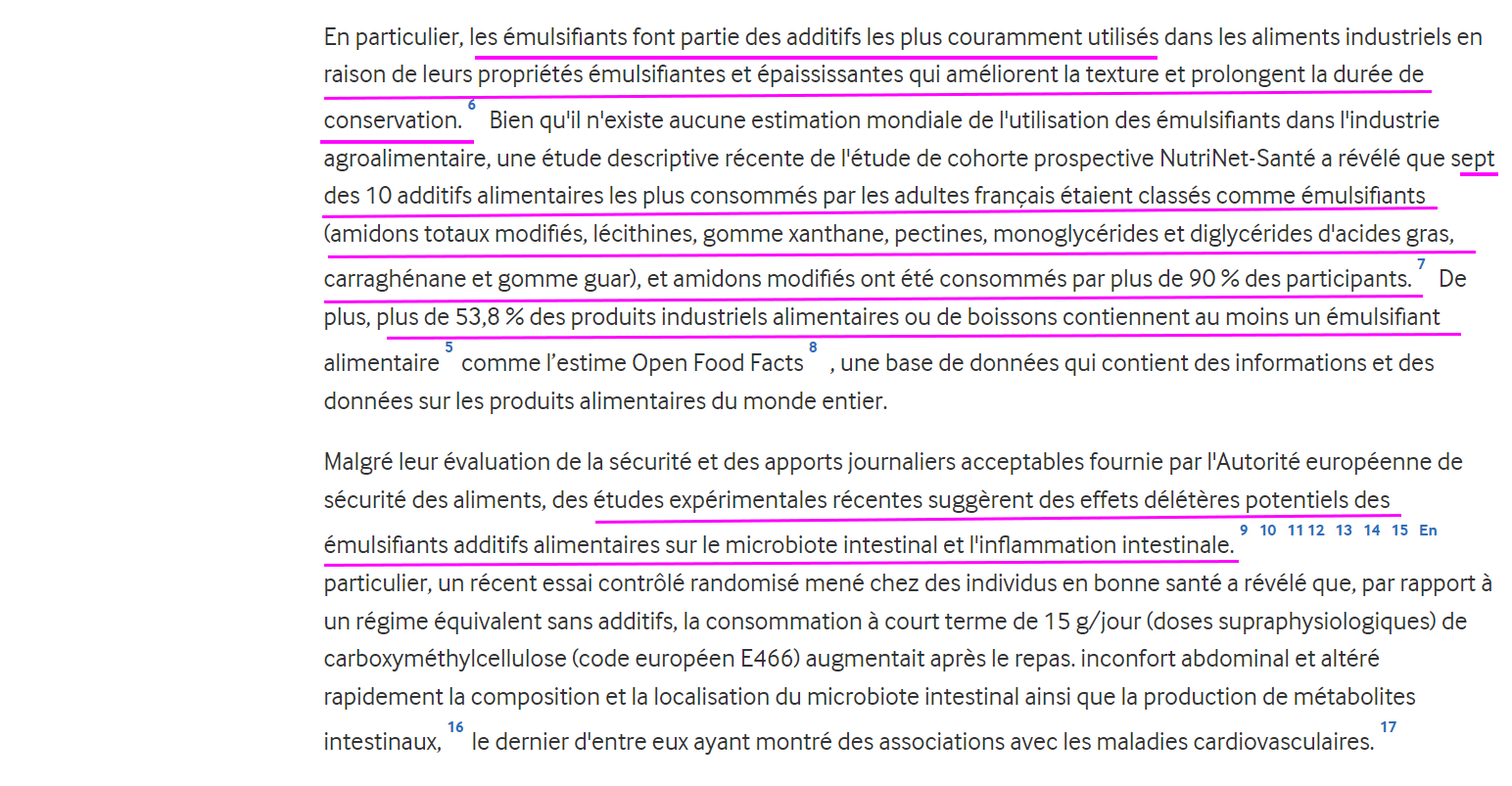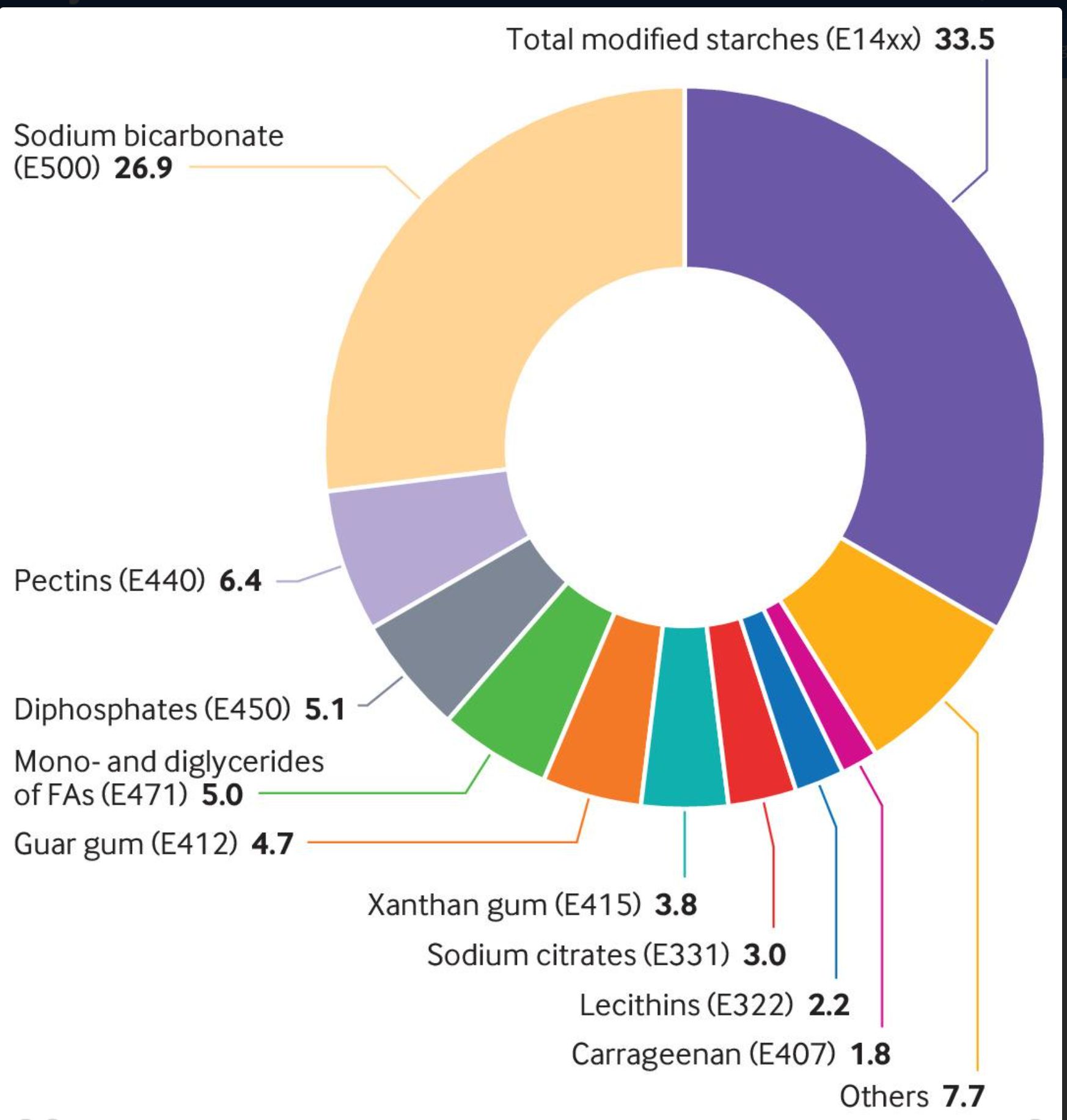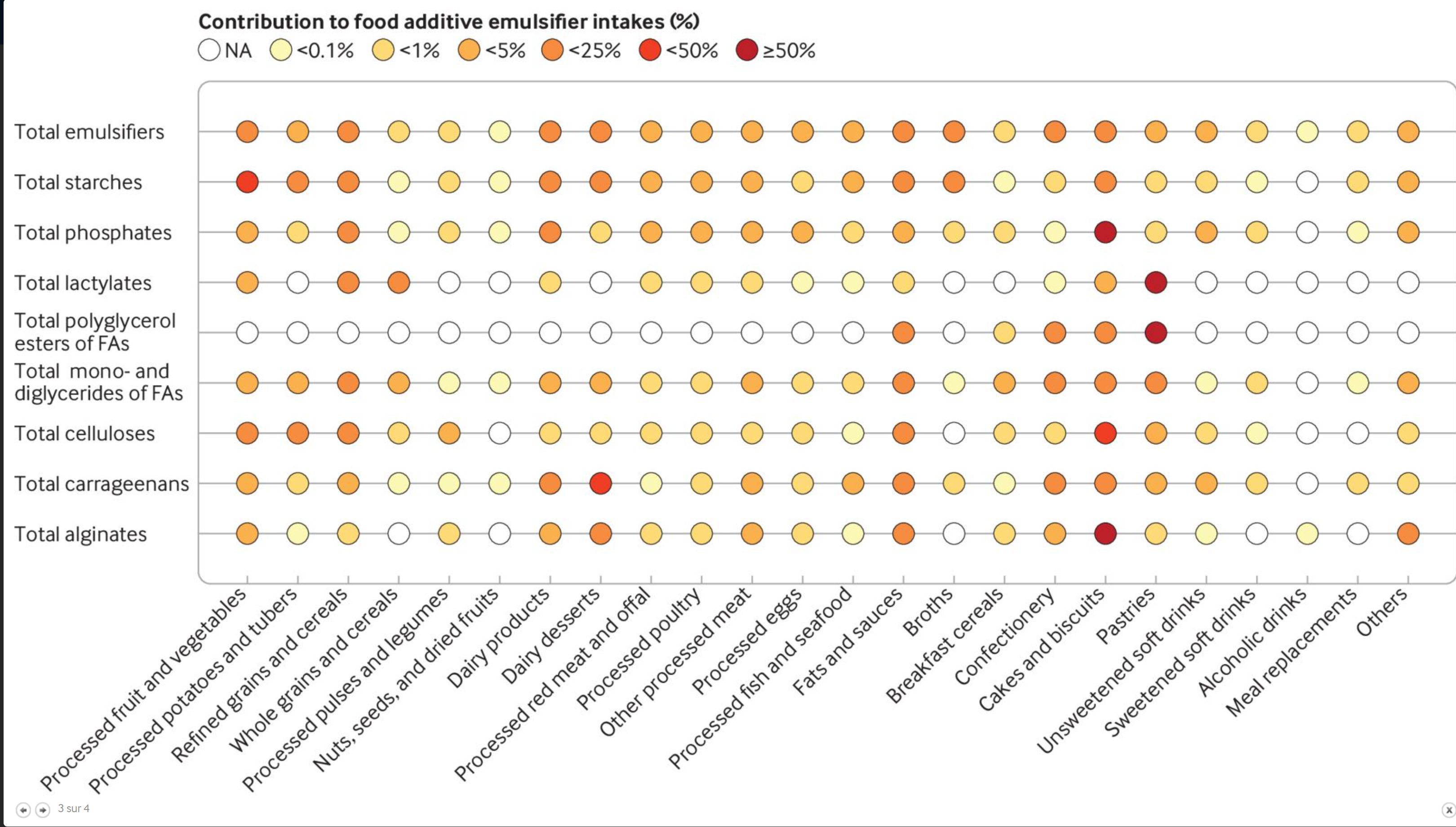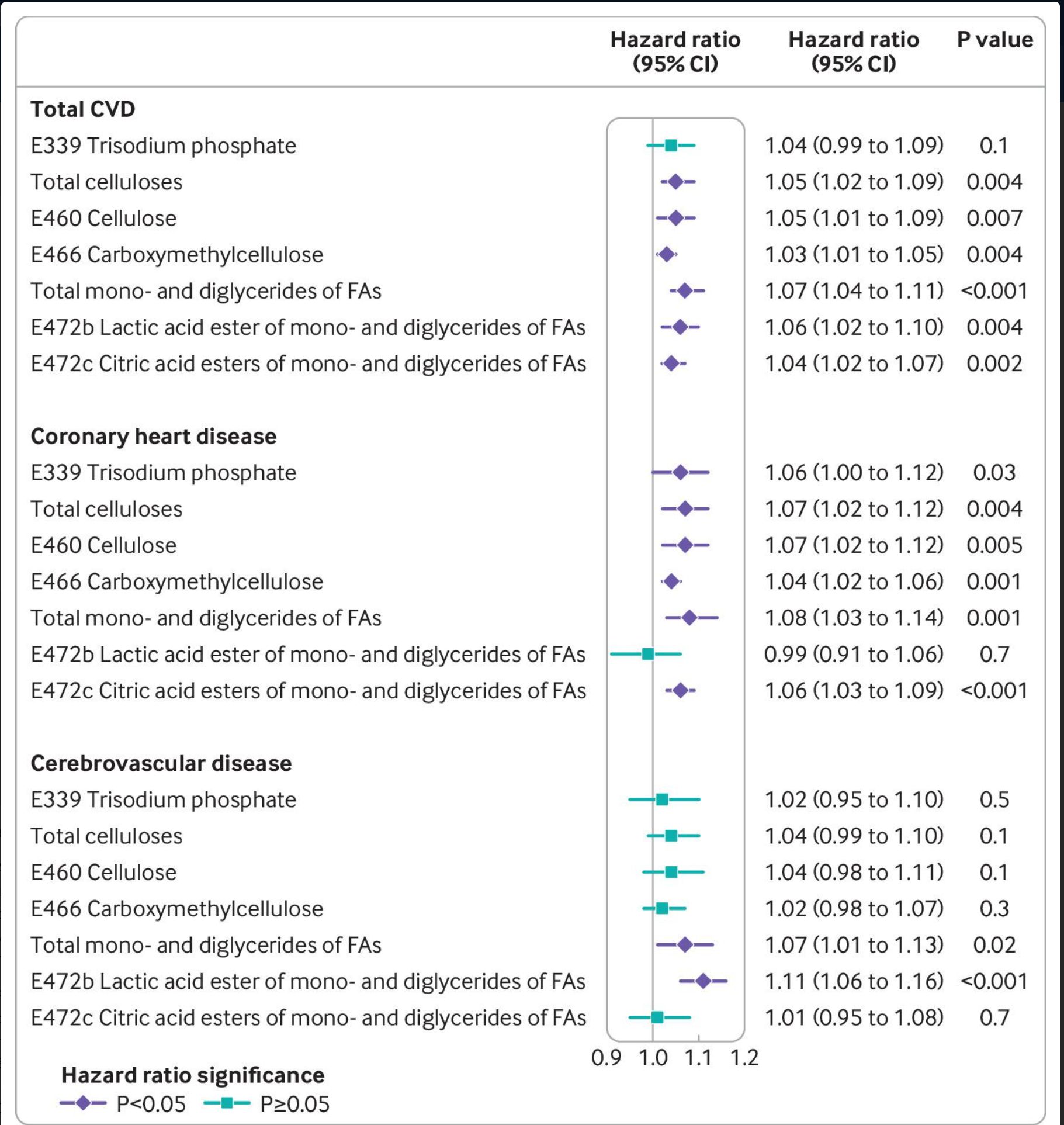Les émulsifiants dans les protéines comme la lécithine de soja et CMC sont dangereux pour la santé intestinale (comme expliqué, il y en a même dans le bio)
A glance at . dietary emulsifiers, the human intestinal mucus and microbiome, and dietary fiber
Michael J. Glade Nutrition 32 (2016) 609–614
Dietary emulsifiers are reported to increase the translocation
of pathogenic microbes across the intestinal epithelial barrier
while concurrently promoting the initiation and continuation of
intestinal inflammation. Emulsifiers are complex molecules
that contain hydrophilic and lipophilic sections (often in a headto-
tail configuration) that maintain a dispersion of either fat
molecules in liquid suspension or water-soluble components in a
hydrophobic environment, extending the stability of such mixtures
and slowing the rate of phase separation. In foods and
beverages, these properties maintain the texture, hydration,
plasticity, fluidity, consistency, viscosity, volume, structural
integrity, color, heat resistance, mold resistance, mouthfeel and
taste of multiphase processed food and beverages, and tend to be
considered harmless.
However, dietary emulsifiers interact with the multilayered endogenous mucus secretions that coat
the luminal surfaces of the intestinal tract and may compromise
the ability of human mucus to prevent contact between microorganisms
and intestinal epithelial cells. Because emulsifiers
have become ubiquitous ingredients in virtually all processed
foods and beverages, including many that claim to be “organic,”
concern that the coinciding increases in emulsifier consumption,
chronic intestinal inflammation, and the incidence of inflammatory
bowel disease may be causally associated is drawing
attention outside of the processed food and beverage industries.

















